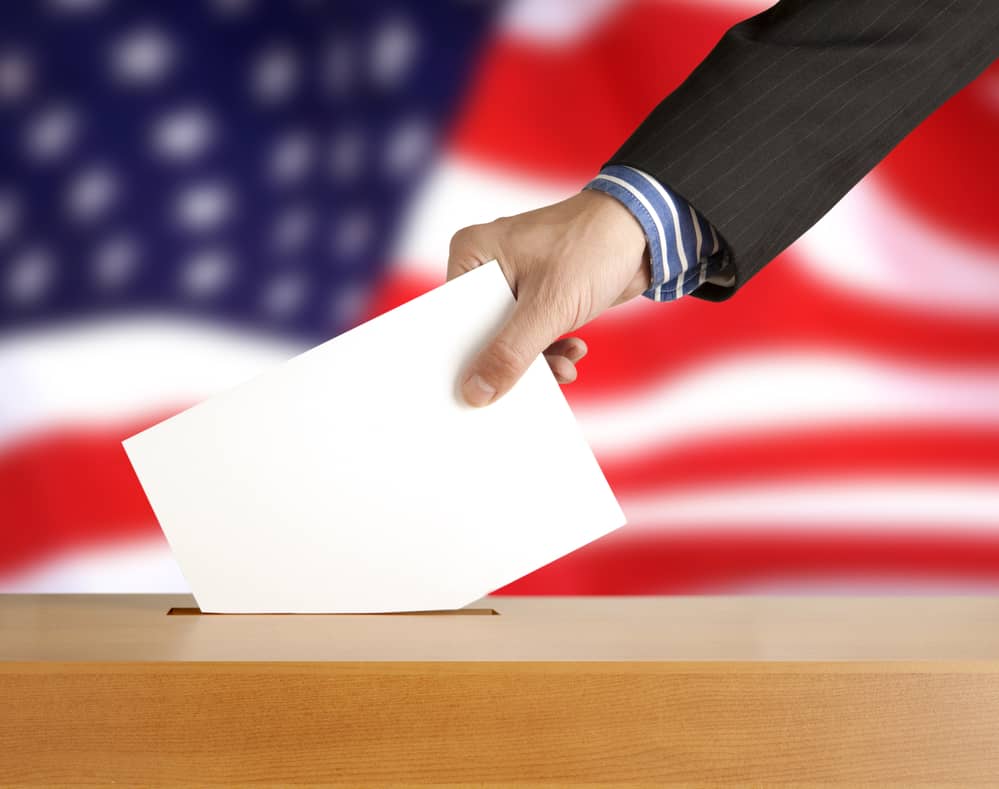What Direction Will the Dollar Take after the 2020 Election?

Author: Maria Andretti
Last Updated: 24 August 2020
The 2020 United States Presidential Election will feature an outspoken incumbent, an ex V.P., and unprecedented social and geopolitical events. The outcome of the election will profoundly influence global financial markets. An asset that may be impacted most heavily is the USD, United States Dollar. How will the dollar fare after November 3rd? A lot depends on the coronavirus economic recovery, central bank policy, and the final tally from ballot boxes across the country.

An election year, at the best of times, is a time of uncertainty. For traders and investors, there is a simple rule of thumb. Neither appreciates looming uncertainty. The upcoming election in the U.S. is sponsoring a voracious debate on what direction the country will take.
The forex market, equities and futures, are tied to the relative strength of the U.S. dollar. The strength of the dollar is based on the health of the economy as a whole. The results of the presidential election have a significant bearing on the domestic economy and the dollar.
The Post-Election U.S. Dollar
For the U.S. dollar, 2020 has been hectic. The only rule governing the currency’s valuation is uncertainty. During the onset of the COVID-19 pandemic, the dollar became the global “safe haven” asset. In March, the early onset days of the pandemic, the U.S.D. Index spiked to heights not seen since 2002.
In aggressive moves by the Federal Reserve, the central bank, led by Chairman Powell, launched an unlimited Quantitative Easing program. With unlimited QE, the Federal Funds Target (FFT) rate was set at zero to 0.25 percent for an indefinite period. The Fed also vowed to purchase U.S. Treasuries and mortgage-backed securities. This unprecedented injection of liquidity during the summer set the stage for a slumping dollar.
These moves by the Federal Reserve beg the question, “Where will the U.S. currency be after Election Day?” The future scenarios, as predicted by market specialists, range from strong to weak. Given the uncertainty caused by social upheaval, heightened electoral awareness, and the pandemic, it is difficult to predict what the dollar will look like after the votes have been counted.
Will the Dollar Be Stronger or Weaker?
There is a considerable divide between those in the banking industry and market analysts when predicting the dollar’s post-election value. There are only two positions, stronger or weaker.
Stronger: The majority of major banks predict the U.S. currency to end 2020 on a stronger note compared to the other major global currencies. The prediction is based on three primary issues:
- Hopes that the United States will lead the COVID-19 recovery efforts.
- Post-election political pressures will ease, and
- The Federal Reserve will ease its aggressive quantitative easing policies.
Weaker: Data compiled by BCA Research suggests that income inequality will lead to social unrest and increased populism. According to Matt Gertken, geopolitical analyst at BCA, the market may be awakening to the premise that President Trump and the Republicans may lose control of the government. Gertken goes on to say that, “Right now, the markets are responding to the stimulus efforts, but, regardless of which party wins the November election, policies appear to turn considerably tougher on business.”
The strong dollar vs. weak dollar argument boils down to political and pandemic uncertainty. Regardless of the outcome, Federal Government policy and social unrest will continue to play a key role in determining the value of the dollar.
The Outlook Remains Positive
By the time strikes midnight on January 31st, 2020, the U.S. will have been witness to several political, economic, and social issues. The country faced a trade war with China, an unrivaled economic slowdown due to COVID-19, social discourse, and a presidential election. These issues and events have introduced a high level of market uncertainty.
Once the results of the November election become known, experts suggest a positive dollar. Although there is considerable angst surrounding the dollar, it remains positioned as the “go-to” safe haven for global investors.
BWCEvent aspires to share balanced and credible details on cryptocurrency, finance, trading, and stocks. Yet, we refrain from giving financial suggestions, urging users to engage in personal research and meticulous verification.


